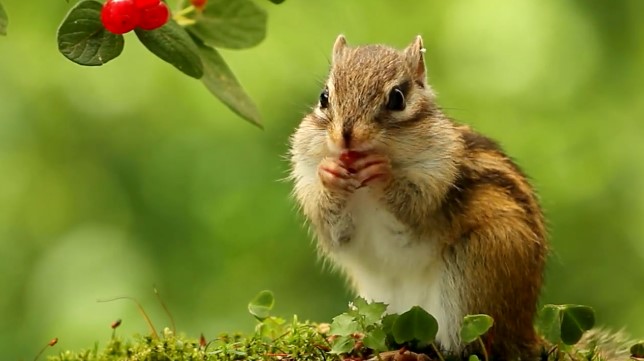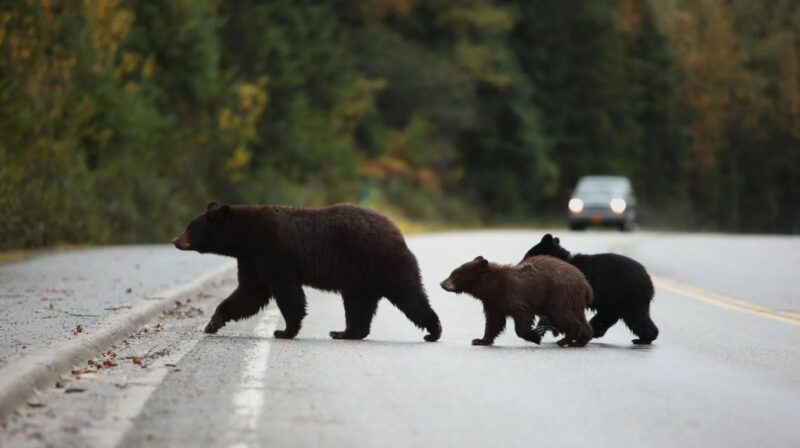Have you ever paused during a stroll in the park to admire a squirrel scurrying up a tree, acorn in mouth? While their antics are cute, have you ever wondered what exactly fills their varied diet? Squirrels are fascinating creatures with eating habits that might surprise you. This in-depth blog post will explore the nutritional facts of what squirrels eat, offering a glimpse into the complex, even gourmet, diet of these agile creatures.
While their dietary choices are intriguing, their vocalizations are equally captivating, revealing a world of complex communication from barks to whistles.
The Basics: Overview of a Diet
Omnivores with Preferences
Squirrels are often categorized as herbivores, but they are, in fact, omnivores. While the majority of their diet consists of plant-based items like nuts, seeds, and fruits, they can also consume animal-based food when the opportunity arises.
Interestingly, the arctic ground squirrel, a relative from the colder regions, has its own set of unique dietary habits and survival strategies.
In many ways, their diet is a survivalist’s dream, versatile and adaptable to the circumstances.
Seasonal Eating Habits
As creatures that are highly active during specific seasons, squirrels modify their diet according to what is most readily available. During spring and summer, you’ll often find them nibbling on the buds of trees. Come fall, they’re busy hoarding nuts for the winter months. Winter sees a shift toward their cached supplies, including buried acorns and other stored goodies.
Squirrel Staples: Nuts, Seeds, and More
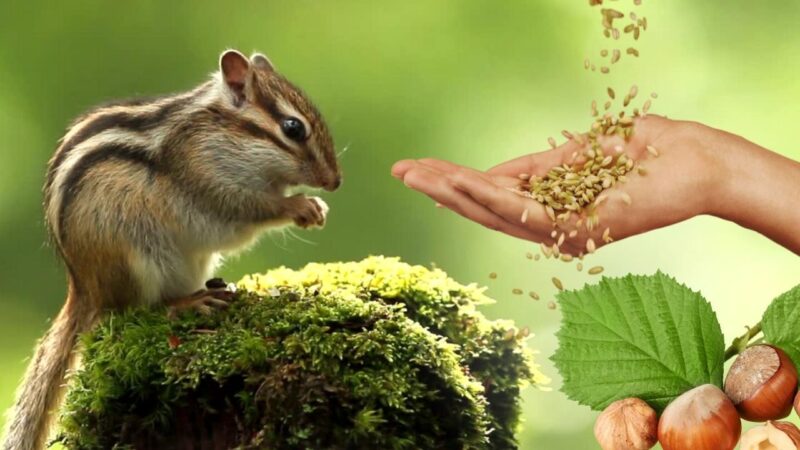
Acorns and Oak Trees
When people think of squirrels, acorns often come to mind—and for good reason. Acorns make up a significant portion of their diet, especially in autumn. These nuts are high in fat and protein, providing essential nutrients that help them prepare for the leaner winter months. Oak trees, which produce acorns, have a symbiotic relationship with squirrels; the critters help in the dispersion of acorns, aiding in the growth of new trees.
A Variety of Seeds
Seeds from various plants, such as sunflowers, are also frequent menu items. They are generally easier to find and less tedious to open compared to hard-shelled nuts. Seeds offer vital nutrients and fats essential for the high energy levels that squirrels need for their hyperactive lifestyles.
A Surprising Love for Fungi
Squirrels also have a penchant for fungi, including various types of mushrooms. While they seem to have a preference for fungi that are not harmful to them, they do make errors in judgment occasionally. Nonetheless, fungi offer a different set of nutrients, such as fiber and various vitamins, that help balance the squirrel’s diet.
The Unusual Menu: Things You Wouldn’t Expect
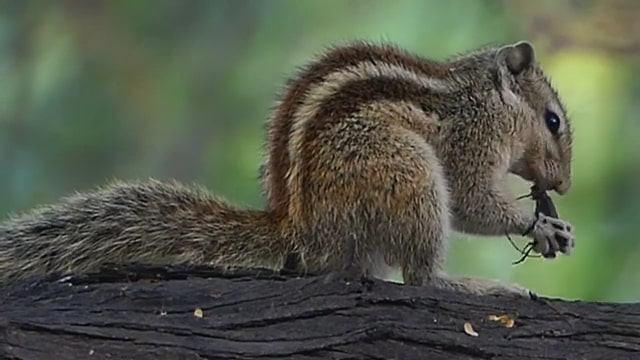
Animal-based Protein
Although primarily herbivorous in dietary practice, squirrels will eat small insects, bird eggs, and even small vertebrates if given the chance. During times when plant-based foods are scarce, these alternatives offer essential protein and fats. This omnivorous tendency highlights the adaptability squirrels have, helping them survive in a variety of environments.
Uncommon Choices
In urban settings, squirrels have been known to raid gardens, chewing on various cultivated fruits and vegetables. While not their first choice, these foods can provide essential nutrients. Some squirrels even chew on antlers or bones, likely to supplement their diet with minerals like calcium.
Nutritional Requirements
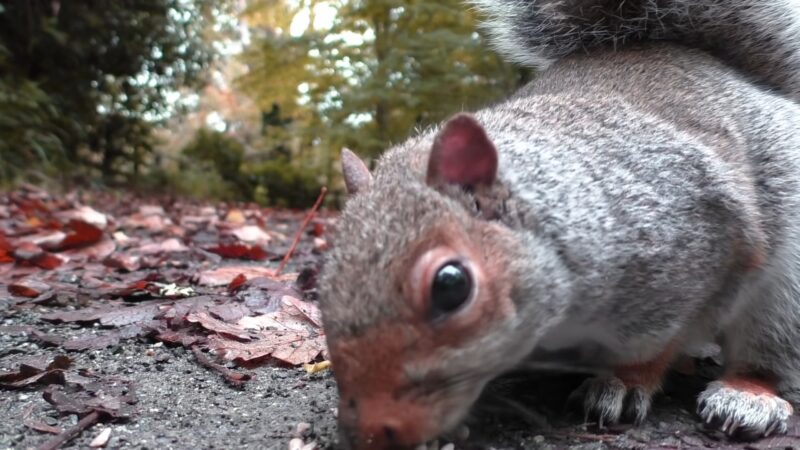
Calories and Nutritional Balance
Maintaining their energy levels requires squirrels to consume a balanced diet rich in proteins, fats, and some carbs. On average, a squirrel needs around 180 calories per day. This varies depending on activity level, age, and whether a female is nursing.
Deficiency and Health
A lack of essential nutrients can lead to health issues such as metabolic bone disease, characterized by weak bones. Symptoms include lethargy and difficulty in climbing or jumping. Ensuring a balanced diet is essential for the long-term well-being of squirrels.
Human Interaction: Pros and Cons
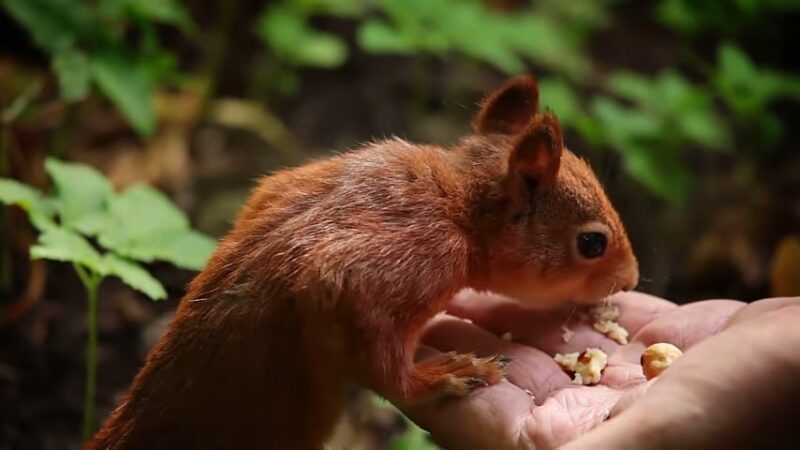
Feeding Squirrels: The Good and the Bad
Pros:
- Feeding can be a way to provide nutrients during harsh seasons.
- Some people find it a rewarding experience to interact with wildlife in this way.
Cons:
- Incorrect foods can lead to nutritional imbalances.
- Human food, especially processed food, can be harmful.
Feeding squirrels is a subject of debate. While providing food during lean times can be helpful, it’s essential to know what is suitable for them. Peanuts and bread, though popular, are not recommended due to their lack of essential nutrients and potential to cause digestive issues.
Environmental Impact
Human interaction, including feeding, can impact the squirrel population and their natural behavior. An abundance of food can lead to overpopulation, which in turn affects the local flora. This can have a cascade effect on the ecosystem, leading to unforeseen consequences for other wildlife.
How Squirrels Find Food
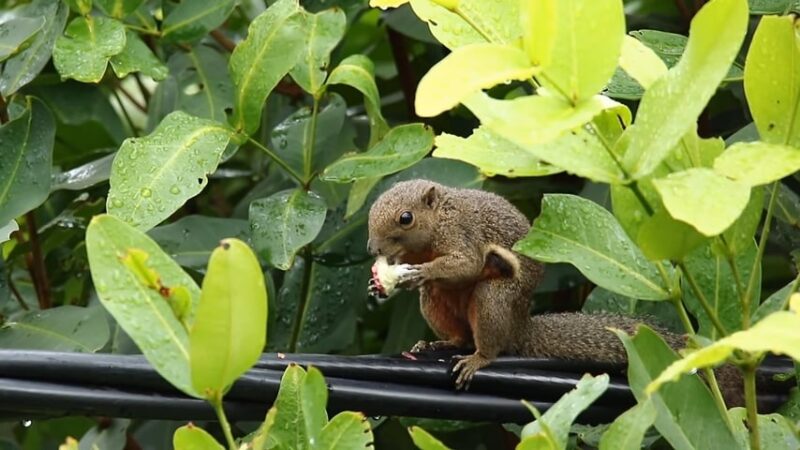
Innate Skills and Techniques
These animals have mastered the art of foraging, employing a host of skills that make them formidable gatherers. These include keen senses of smell and sight, agile movement, and even a degree of problem-solving ability. They have been observed working out how to open containers and even how to navigate ‘squirrel-proof’ bird feeders. Their resourcefulness reveals not just an instinctual drive for survival but also a remarkable adaptability.
Food Caching: Nature’s Pantry
Food caching is an essential part of a squirrel’s life, especially for those species that dwell in areas with harsh winters. Squirrels bury nuts in the ground, creating a cache that they’ll revisit during food-scarce months. They have an extraordinary ability to remember where they’ve hidden their loot, although they do forget some, contributing to the growth of new trees.
Social Dynamics in Foraging
Interestingly, squirrels engage in what researchers call ‘deceptive caching.’ When they sense they are being watched, they may pretend to bury a nut, saving it in their mouth instead and later hiding it elsewhere. This intriguing behavior helps protect their food stores from potential thieves, showcasing a level of social dynamics and planning not often seen in rodents.
FAQs
What types of squirrels are there?
There are various types, including red, ground, grey, fox, flying, black, and striped squirrels. They belong to the Sciuridae family of mammals.
Are squirrels picky eaters?
No, they are not picky eaters. They have a natural appetite for a wide range of foods, including fruits, vegetables, fungi, nuts, and even insects.
What fruits do squirrels eat?
They are fond of fruits like pears, grapes, apples, kiwi, avocados, peaches, nectarines, figs, plums, mangoes, and citrus. They also enjoy berries such as strawberries, blackberries, blueberries, raspberries, mulberries, and more.
Do squirrels eat vegetables?
Yes, they eat a variety of vegetables like lettuce, chard, kale, spinach, arugula, tomatoes, radishes, corn, squash, beans, peas, root vegetables, greens, okra, eggplant, brussels sprouts, carrots, broccoli, cabbage, asparagus, celery, cauliflower, and leeks.
Can squirrels eat cereals?
They love cereals that contain grains and nuts, such as Chex, Cheerios, Cap’n Crunch, shredded wheat, corn flakes, and grape nuts. However, sugary cereals are not the healthiest option for them.
Do squirrels eat cheese?
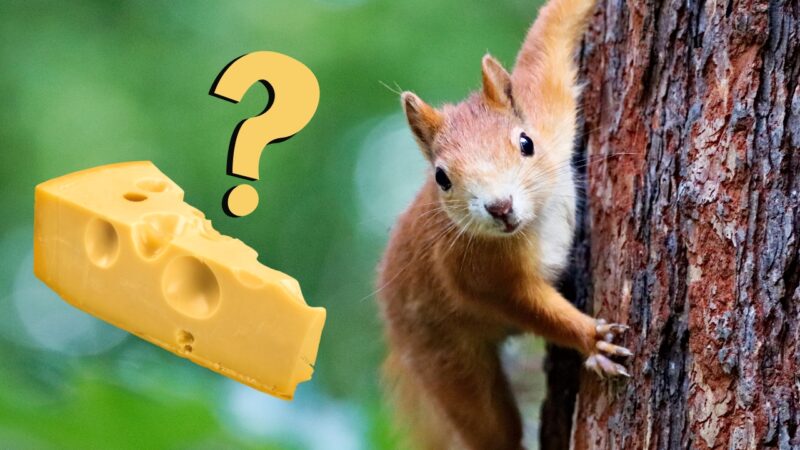
They have developed a taste for cheese, including cheddar, swiss, provolone, and mozzarella. They are not picky about how they consume it, whether it’s in a discarded sandwich or as a chunk.
What nuts do squirrels prefer?
Tgey are particularly fond of nuts like pecans, walnuts, hazelnuts, almonds, pistachios, acorns, cashews, chestnuts, hickory nuts, pine nuts, and macadamia nuts.
Do squirrels eat insects?
Yes, when fruits and nuts are not readily available, they will eat small insects like caterpillars, larvae, winged bugs, grasshoppers, injured butterflies, and crickets for protein.
What about fungi?
These animals forage for mushrooms and other fungi, including acorn truffles, oyster mushrooms, and more. They sometimes even dry the fungi to eat later.
Is there anything that squirrels don’t eat?
They generally avoid raw onions, raw garlic, and hot peppers. They also shouldn’t consume dairy products, chocolate, junk food, and highly processed foods.
Final Words
So, the next time you spot a squirrel gracefully leaping from branch to branch or darting across your path, you’ll have a better understanding of what might be fueling its agile maneuvers.
Squirrels are not just opportunistic eaters; they are survivalists with a complex and surprisingly diverse diet that goes beyond mere nuts and seeds.
While we often associate them with their love for acorns and other natural foods, there are other aspects of their behavior that might surprise you, such as the their poop and its resemblance to certain foods.
Their eating habits offer a fascinating glimpse into the intricate balance of nature, one acorn, seed, or mushroom at a time.


